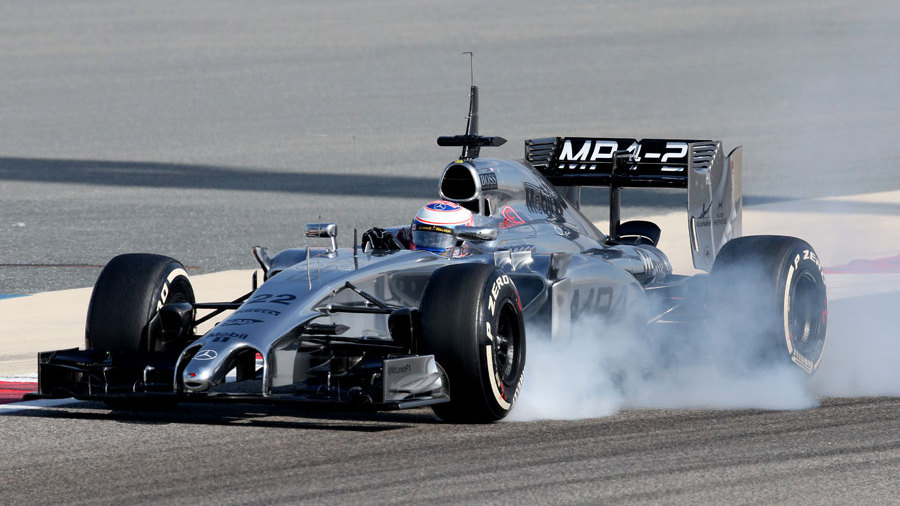- News
Fuel consumption 'a big challenge'

Two of the drivers who completed a race distance in testing last week are expecting fuel consumption to be a challenge for teams next year.
The new V6 turbo engines and advanced energy recovery systems are more fuel efficient than the old V8s, but under the regulations are restricted to just 100 litres of fuel per race - a cut of roughly 35% on last year. Mercedes and McLaren were among the teams attempting a race simulation last week in Bahrain and both Nico Rosberg and Jenson Button said the teams have a long way to go to get the most from the engine over a race distance.
"Bahrain is the worst track, so today it was tough to get to the end of the race with 100 litres," Rosberg said. "That's going to be a big challenge in Melbourne and that's what it was about today, to try and judge that and make sure that you get the quickest from the beginning to the end of the race while keeping the fuel consumption consistent."
"I finished the grand prix distance, but in testing it's relatively easy to do because you just drive around really slow," Button added. "I think we are all going to find it tricky and there is a lot of fine tuning that's needed from everyone. I think for most people it's trying to get the car to run for a race distance - that's the biggest issue!"
Rosberg said it's not as simple as driving to a set speed throughout the race.
"You can put your fuel consumption on the dash, but when you have a heavy car it takes a lot more fuel to get this car around the track, even though you're going slower than it does at the end of the race when you have a light car," he explained. "It's not necessarily targeting the same fuel consumption form beginning to end, it varies. It's quite complicated and definitely we will need a lot of help and advice from the engineers."
Button said the lighter fuel load meant the strain on tyres is not as pronounced as it was between qualifying and race conditions last year, but added that there are challenges with the all-new formula.
"The tyres struggled with 150 kilos of fuel [last year] so the cars were a hell of a lot slower [in the race]. Now you are only putting 100 kilos in the car, so there is a smaller difference when you get into race conditions. In a straight line it's a hell of a lot slower and the engine is doing so many different things, and it's doing something different every single lap of the race. That's difficult for a driver to get his head around, because what he felt on the previous lap under braking has completely changed the next lap around. Braking points are so tricky and I think that's the weirdest thing in the race."